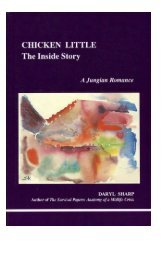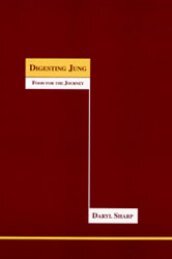Personality types: Jung's model of typology - Inner City Books
Personality types: Jung's model of typology - Inner City Books
Personality types: Jung's model of typology - Inner City Books
- No tags were found...
Create successful ePaper yourself
Turn your PDF publications into a flip-book with our unique Google optimized e-Paper software.
90 Concluding Remarkspointless. Its purpose is rather to provide a critical psychologywhich would make a methodical investigation and presentation<strong>of</strong> the empirical material possible. First and foremost, it isa critical tool for the research worker, who needs definitepoints <strong>of</strong> view and guidelines if he is to reduce the chaoticpr<strong>of</strong>usion <strong>of</strong> individual experiences to any kind <strong>of</strong> order. . . .Secondly, a <strong>typology</strong> is a great help in understanding the widevariations that occur among individuals, and it also furnishes aclue to the fundamental differences in the psychological theoriesnow current. Last but not least, it is an essential means fordetermining the "personal equation" <strong>of</strong> the practising psychologist,who, armed with an exact knowledge <strong>of</strong> his differentiatedand inferior functions, can avoid many seriousblunders in dealing with his patients. 114Whether <strong>Jung's</strong> <strong>model</strong> is "true" or not—objectively true—is a moot point (is anything ever "objectively" true?). Certainly,the extent to which the two attitudes and the four functionsaccord with statistical reality has not been established. To dothat, one would have to correlate tests <strong>of</strong> millions <strong>of</strong> peoplewith great insight into themselves, and even then the resultswould be suspect, since the testing procedure itself would stilldepend on the <strong>typology</strong> <strong>of</strong> those who formulated the test—thequestions, phrasing, preconceptions, assumptions, etc.—not tomention the circumstantial vagaries that attend any test at aspecific time.The real "truth" is that <strong>Jung's</strong> <strong>model</strong> <strong>of</strong> psychological <strong>types</strong>has all the advantages and disadvantages <strong>of</strong> any scientific<strong>model</strong>. Although lacking statistical verification, it is equallyhard to disprove. But it accords with experiential reality.Moreover, since it is based on a fourfold—mandala-like—way <strong>of</strong> looking at things that is archetypal, it is psychologicallysatisfying.As mentioned earlier (page 31), a person's behavior can bequite misleading in determining <strong>typology</strong>. For instance, to en-114 Ibid., par. 986.










